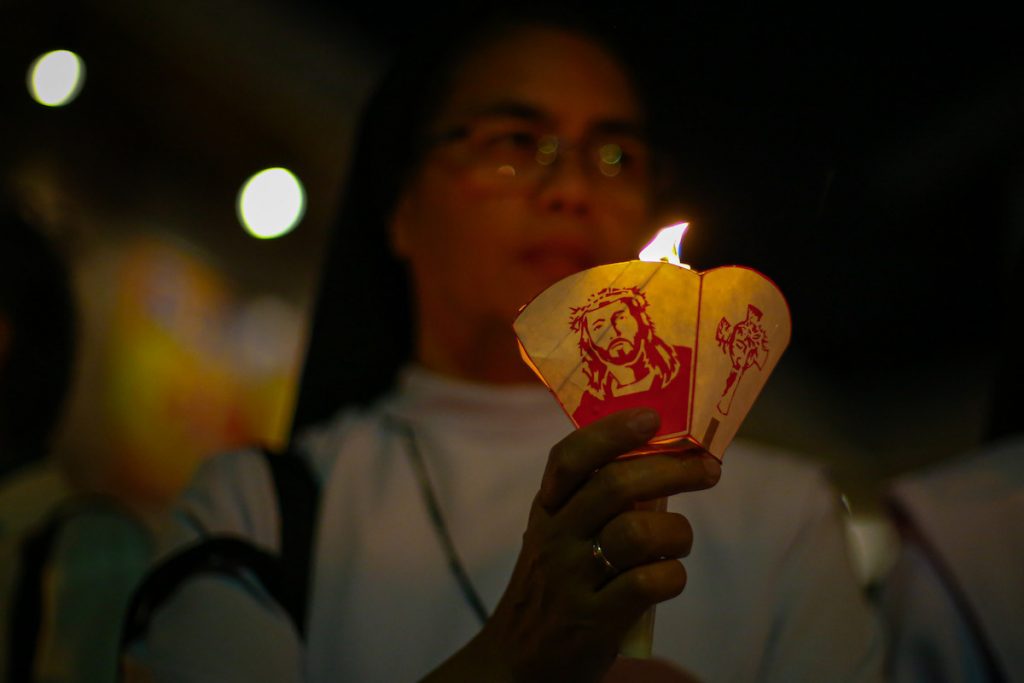Welcome to the second part of my essay on holiness! May I expound further on the three points I previously mentioned in the first part:
Holiness is not only for a so-called “select few”; we are all meant to become holy. It is not merely an invitation or an option, but a call and challenge to be one.
We are all called to be holy. (Lev 11: 44) The difficulty lies more in our attitude towards holiness than in the effort it takes to become holy. We must start by reflecting much more deeply on our spiritual core as human beings and hopefully see the goodness that exists in all of us, the goodness which God has given and sustains for us. (Gen 1: 31)
This may help to dispel the notion that we cannot be holy, or that we can choose not to.
Holiness is not about having to manifest the supernatural: It is about living a life and bearing witness to this gift of goodness from God, a life ultimately directed towards the giving of oneself for others. (1 Cor 13)
The miracle is not in being able to defy the laws of nature; the real miracle happens when in spite of the world’s evil and its woes, goodness can still exist and save lost human lives; and will continue to persist for as long as one is determined with God to make it last. Holiness is persisting in doing what is good and right for all. And since this is what our Father in heaven wishes for all of us, then holiness is simply following the will of the Father. (Lk 22: 42)
Holiness thus, remains a call and for some, a serious challenge. Do we dare change how we think and act? Our instinct of self-preservation, our inclinations towards our own gains and interests will always test us to become “someone we should be,” from “someone we wish we can be.” Such is the importance then of our cooperation with the grace of our Lord. (Eph 4: 22-24; 6: 10-11)

Holiness does not only happen under uniquely fateful circumstances with “dramatic” outcomes; holiness happens in the inconspicuous daily actions of being “fully human.”
Holiness need not be set on a grand stage of earth-shattering events in which so many people have been converted or were brought to the faith. Holiness is not about making lasting legacies. Jesus himself did not set a vision directed at creating and sustaining an everlasting church; it just happened. Holiness just happens; it happens within the context where one finds oneself. It is a vital response to try to do what is right and simply good when the appropriate circumstances present themselves. (Mic 6: 8)
We do not create the memories; the consequences of our decisive actions do. The Church was born because of what Jesus taught and did and how it meant so much to the people whose lives he touched in his time. Unlike how we think today in the terms and categories of present and future efficiency, Jesus has no need for succession planning; the Church lives because the memory of his holiness acquired a life of its own, the life which we believe is nurtured by the Spirit. (Jn 14: 15-17)
So, holiness is to focus on the present, on the little things that need to be done now. It is a brave decision to be good and to do good every day. Acts of goodness in turn tend to be paid forward to other people, the “ripple effect” of sharing love. “Being holy” for short critical moments — when at times it is more convenient to be “less than human” — reminds them of our intrinsic goodness, and as a result they too “become holy” for others.
Holiness calls for a radical shift of mindset from self-centeredness to selflessness; and through our holy actions, the light and power of God is allowed to shine.
Holiness now becomes the lifelong project to be what God meant us to be, and to do what he wishes us to do – to be like Jesus, ever concerned for the welfare of others. In consolation for this life of self-giving, he commits to us the joy that only heaven can give, the eternal happiness the world can never promise. (Jn 14: 1-2)
Through holiness, we become instruments in the fulfillment of Jesus’ message – the coming of the kingdom of God, where no one is in dire need, where no one stands proudly above another, where everybody feels responsible for everybody else and no one is left behind. (Lk 4: 16-21) Through holiness therefore is the inevitability of God’s indomitable reign.
Brother Jess Matias is a professed brother of the Secular Franciscan Order. He serves as minister of the St. Pio of Pietrelcina Fraternity at St. Francis of Assisi Parish in Mandaluyong City, coordinator of the Padre Pio Prayer Groups of the Capuchins in the Philippines and prison counselor and catechist for the Bureau of Jail Management and Penology.
The views expressed in this article are the opinions of the author and do not necessarily reflect the editorial stance of LiCAS.news.






